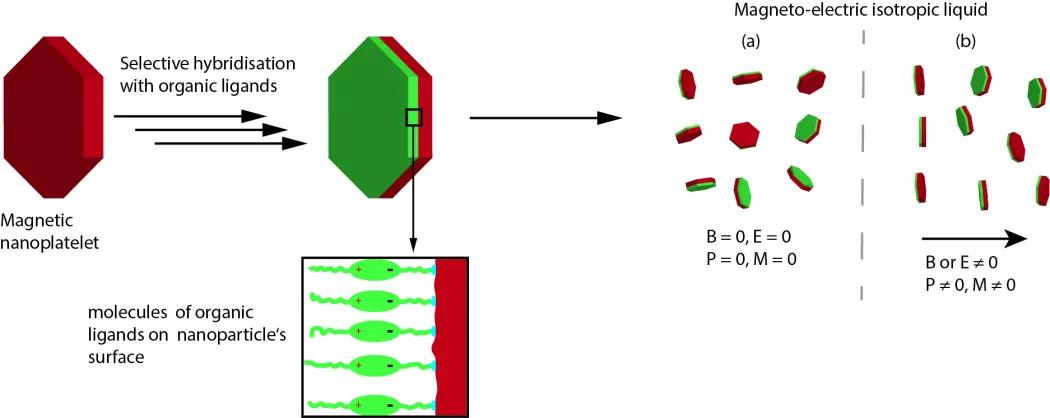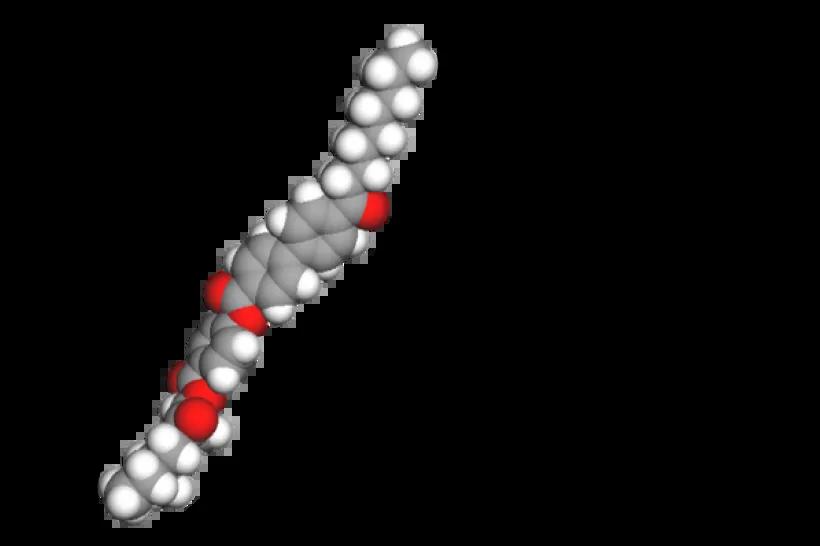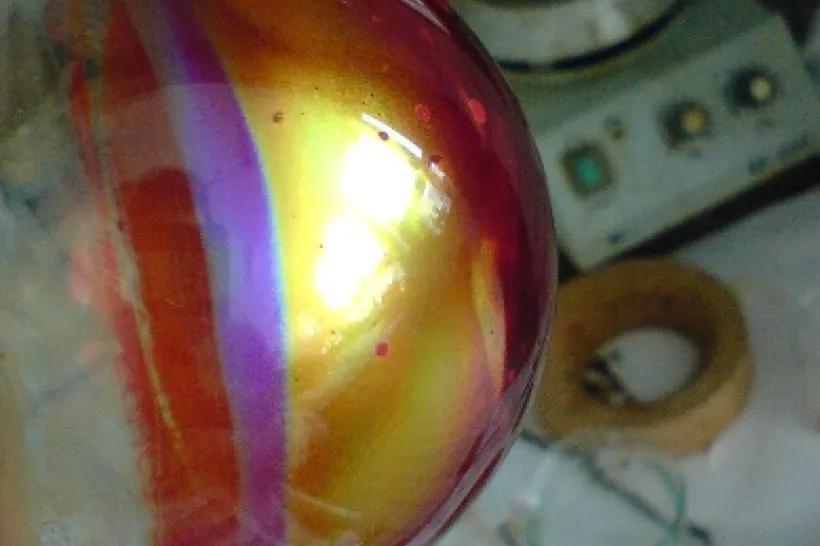The topic includes a synthetic-technological solution of the European project "MAGNELIQ", of the Horizon 2020 call, on which we cooperate with the Department of Dielectrics within a 5-member consortium.
The aim of the project is the development of the so-called magneto-electric (ME) liquid for highly sensitive sensors. Unlike solid ferroelectrics, ME liquid based on magnetic nanoplatelets in a matrix of organic molecules will have indisputable advantages and will allow greater sensitivity and excellent resolution.
In analogy with functional liquid crystalline ligands, ligands for magnetic nanoplatelets will be molecules whose primary task is to stabilise the dispersions of nanoparticles in liquid matrices.
Our goal is the design and synthesis of ligands, whose additional function is the ability to orient their molecules in response to the external electric field. By binding such ligands to the surface of magnetic nanoplatelets, we would like to transfer this key property to the particles themselves.
The challenge is not only the development of ligands enabling the necessary response to the electric field, but also the technological solution itself, enabling the selective binding of ligands to only one side of the nanoparticle.
The problem will be addressed at the molecular level by selecting suitable functional groups, allowing for example the binding of ligands to the selectively modified nanoplatelets’ surface or the reversible immobilisation of nanoplatelets on different types of surfaces by auxiliary ligands before hybridising the surface with functional ligands.





